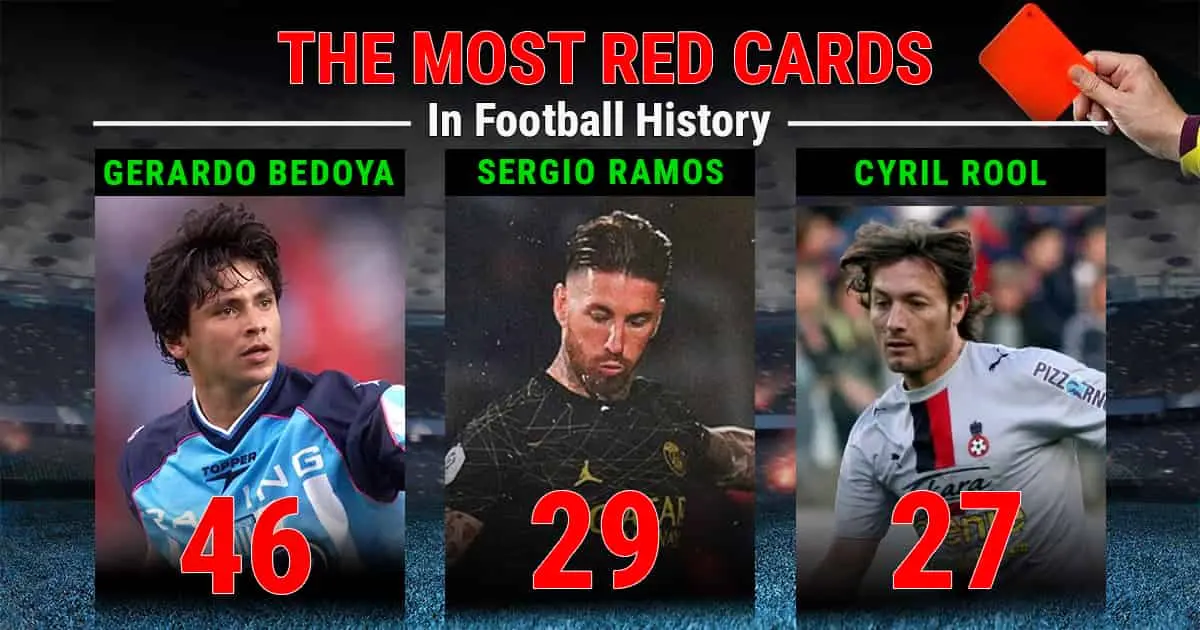
Unraveling the Legends: A Deep Dive into UEFA Champions League Record-Breaking Stats Explained
The UEFA Champions League, football’s most prestigious club competition, is more than just a tournament; it’s a theatre of dreams, a crucible of legends, and a relentless pursuit of immortality. Since its inception as the European Champion Clubs’ Cup in 1955, and particularly since its rebranding in 1992, the UCL has produced countless moments of breathtaking drama, tactical genius, and individual brilliance. Within this rich tapestry, certain records stand as monumental achievements, testaments to sustained excellence, unparalleled talent, and an insatiable hunger for glory.
These aren’t just numbers; they are stories of dedication, consistency, and the sheer will to dominate. Understanding these record-breaking stats isn’t just about memorizing figures; it’s about appreciating the context, the era, and the sheer difficulty of reaching such heights in a competition where only the elite clash. Let’s delve into the most significant records, explaining why they are so extraordinary and perhaps, in some cases, truly unbreakable.
I. The Apex Predators: Individual Scoring Records
No discussion of Champions League records can begin without acknowledging the colossal figures who have redefined goalscoring in the modern era: Cristiano Ronaldo and Lionel Messi. Their two-decade-long rivalry has pushed the boundaries of what was thought possible, leaving every previous record shattered.
1. Most Goals in UCL History (Career): Cristiano Ronaldo & Lionel Messi
- The Record: Cristiano Ronaldo (140+ goals) and Lionel Messi (129+ goals, as of early 2024)
- The Explanation: This is perhaps the most iconic and hotly contested record. Before their era, Raúl González’s 71 goals seemed insurmountable. Ronaldo and Messi didn’t just surpass it; they doubled it. What makes this extraordinary is their longevity, consistency, and big-game prowess.
- Longevity: Both players have maintained elite performance levels for nearly two decades, consistently featuring in the latter stages of the competition.
- Consistency: They rarely have "off" seasons in the UCL. Year after year, they deliver double-digit goal tallies.
- Big-Game Impact: A significant portion of their goals come in the knockout stages, semi-finals, and finals, against the very best opposition. This isn’t just stat-padding; it’s decisive goalscoring when it matters most.
- Diverse Goalscoring: They score every type of goal – tap-ins, headers, long-range screamers, penalties, free-kicks – showcasing complete attacking arsenals.
- Why it’s Hard to Break: The gap between them and the next active player (Robert Lewandowski, 92+ goals) is vast. To catch them, a player would need to score 10-15 goals per season for well over a decade, starting from a very young age, and consistently play for top European clubs reaching the semi-finals or finals. The era of their duopoly has set a new, almost unreachable, benchmark.
2. Most Hat-Tricks in UCL History: Cristiano Ronaldo & Lionel Messi
- The Record: Both with 8 hat-tricks.
- The Explanation: Scoring three goals in a single UCL match is a rare feat, requiring a perfect storm of individual brilliance, team performance, and opposition vulnerability. To do it eight times underscores their relentless attacking intent and ability to exploit even the slightest defensive lapse. It speaks to their individual moments of pure dominance.
3. Most Goals in a Single UCL Season: Cristiano Ronaldo (17 goals, 2013-14)
- The Explanation: This record, achieved during Real Madrid’s "La Décima" campaign, showcases a season of unparalleled individual peak performance. It requires a deep run in the tournament (Real Madrid won it that year), consistent scoring across group stages and knockouts, and an attacking system built to maximize the player’s output. Only Robert Lewandowski (15 goals) and Karim Benzema (15 goals) have come close in recent years, highlighting the difficulty of maintaining such a prolific rate throughout an entire European campaign.
II. The Maestros of Playmaking & Longevity: Assists & Appearances
Goals win games, but assists create them, and appearances signify enduring presence at the highest level.
1. Most Assists in UCL History (Career): Cristiano Ronaldo (40+ assists) & Lionel Messi (39+ assists)
- The Explanation: While celebrated for their goalscoring, their assist numbers highlight their complete footballing intelligence. They are not just finishers but also creators, capable of unlocking defenses with incisive passes and clever movement. This dual threat makes them virtually unplayable. It shows their evolution as players – starting as pure attackers and developing into comprehensive playmakers.
2. Most Appearances in UCL History (Career): Cristiano Ronaldo (183), Iker Casillas (177), Lionel Messi (163+)
- The Explanation: This record is a testament to incredible longevity, fitness, and consistent selection at the highest level. To play over 160 Champions League games means being a key player for elite clubs for 15-20 years, avoiding major injuries, and maintaining performance levels that justify starting ahead of world-class teammates. Casillas, a goalkeeper, achieved this through sheer durability, while Ronaldo and Messi did so as outfield players, which is even more demanding physically.
III. The Untouchable Thrones: Team Dominance
While individual records captivate, the UCL is ultimately a team competition. Certain clubs have forged dynasties that have set records likely to stand for generations.
1. Most UCL Titles (Club): Real Madrid (14 titles)
- The Record: Real Madrid’s unparalleled dominance with 14 European Cups/Champions League titles.
- The Explanation: This record is truly staggering, especially when compared to the next best (AC Milan with 7, Bayern Munich and Liverpool with 6). Real Madrid’s relationship with this competition is unique.
- Early Dominance: They won the first five editions of the European Cup (1956-1960), establishing an early lead that no one has ever threatened. This era of Alfredo Di Stéfano and Ferenc Puskás set the standard.
- Modern Era Success: After a period of relative drought, they re-established their dominance in the Champions League era, winning 8 titles since 1998, including an unprecedented three in a row (2016, 2017, 2018) and five in nine years (2014-2022).
- "DNA" of the Competition: Many attribute Real Madrid’s success to a unique "Champions League DNA" – an ability to perform under pressure, a winning mentality ingrained in the club’s culture, and an uncanny knack for winning tight games in the knockout stages.
- Why it’s Unbreakable (for the foreseeable future): The gap is so immense. Even if a club were to win the UCL every three years, it would take them over two decades to just halve the deficit. The consistency required over such a long period, across different eras of football, is almost impossible to replicate.
2. Most Consecutive UCL Titles (Club): Real Madrid (5 titles, 1956-1960 & 3 titles, 2016-2018)
- The Explanation: Winning one Champions League is incredibly difficult; winning two in a row is rare; winning three is a modern miracle. Real Madrid’s first five were in a different format, but their three consecutive titles in the modern UCL era (2016-2018) is an astonishing feat. It speaks to a perfect storm of world-class talent, an elite manager (Zinedine Zidane), a cohesive squad, and tactical adaptability. The intensity, fatigue, and competition levels in modern football make sustained dominance year after year incredibly challenging.
3. Longest Unbeaten Run in UCL History: Manchester United (25 matches, 2007-2009)
- The Explanation: This record under Sir Alex Ferguson highlights incredible defensive solidity, tactical discipline, and a deep squad capable of navigating the demands of European football without losing. It reflects a team that was incredibly hard to beat, even if they weren’t always winning. Other notable streaks include Bayern Munich (2001-2002, 2019-2021) and Real Madrid.
IV. Goalkeeping Guardians & Defensive Walls
Behind every great attacking team is a solid defense and an impenetrable goalkeeper.
1. Most Clean Sheets in UCL History (Goalkeeper): Iker Casillas (59 clean sheets), Gianluigi Buffon (53 clean sheets)
- The Explanation: This record is a testament to longevity, consistent world-class goalkeeping, and playing for top teams that regularly reach the latter stages of the competition. Casillas’s record, accumulated over two decades with Real Madrid and Porto, underscores his incredible reliability and the defensive solidity of the teams he played for. Buffon’s record, primarily with Juventus, reflects similar qualities. These records aren’t just about individual saves; they’re about commanding the defense and minimizing clear-cut chances.
V. Managerial Masterminds
The architects of success, managers often set records that speak to their tactical acumen and leadership.
1. Most UCL Titles (Manager): Carlo Ancelotti (4 titles)
- The Record: Carlo Ancelotti (AC Milan: 2003, 2007; Real Madrid: 2014, 2022)
- The Explanation: Ancelotti’s record is a testament to his adaptability, man-management skills, and tactical flexibility across different eras and with different clubs. Winning the competition with two different European giants, and in distinct footballing periods, highlights his enduring quality. His calm demeanor and ability to get the best out of star players have been key to his unprecedented success.
2. Most UCL Matches Managed: Arsène Wenger (190 matches)
- The Explanation: While Wenger never won the UCL, his record for most matches managed (primarily with Arsenal) is a testament to his incredible longevity, consistency, and stability at one club at the elite level. It shows a manager who consistently qualified for the competition and navigated its group stages and knockout rounds for nearly two decades.
VI. The Unique & Unsung Records
Beyond the headline figures, some records highlight specific moments of brilliance or oddity.
1. Fastest Goal in UCL History: Roy Makaay (10.12 seconds, Bayern Munich vs. Real Madrid, 2007)
- The Explanation: A blink-and-you-miss-it moment that highlights immediate intensity and a lapse in concentration from the opposition. It requires a perfectly executed kick-off routine and clinical finishing.
2. Oldest Goalscorer in UCL History: Francesco Totti (38 years, 59 days, CSKA Moscow vs. Roma, 2014)
- The Explanation: A tribute to longevity and enduring quality from a legendary player. To still be playing and scoring at the elite level at that age is rare, especially for an outfield player.
3. Youngest Goalscorer in UCL History: Ansu Fati (17 years, 40 days, Inter Milan vs. Barcelona, 2019)
- The Explanation: Signifies prodigious talent and early integration into a top-tier team. It speaks to the potential of a player who is already making an impact on the biggest stage at an incredibly tender age.
Conclusion: The Enduring Legacy and the Future
The UEFA Champions League records are more than just statistical curiosities; they are a chronicle of footballing excellence. They tell the story of the sport’s evolution, the rise of modern legends, and the enduring dominance of certain clubs. While some records, particularly Real Madrid’s 14 titles and Ronaldo/Messi’s goal tallies, appear almost unbreakable in the foreseeable future, the beauty of football lies in its unpredictability.
The next generation of stars, like Kylian Mbappé and Erling Haaland, are already making their mark, demonstrating the potential to challenge some of these monumental achievements. However, the sheer consistency, longevity, and big-game performances required to truly surpass the current record holders mean that these benchmarks will likely stand as towering symbols of greatness for many years to come, forever cementing the legacy of those who dared to break the boundaries in Europe’s most coveted club competition. The UCL remains the ultimate stage, and its records, a timeless testament to the relentless pursuit of footballing immortality.



